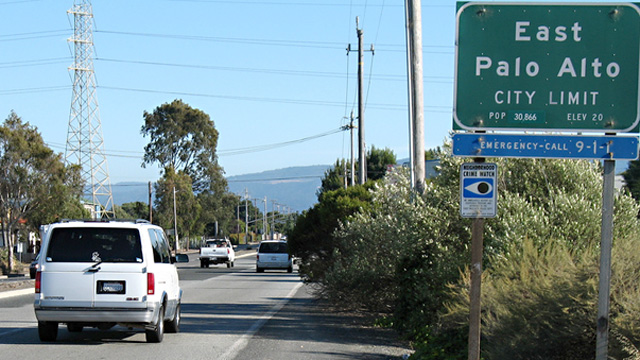
When experts mourn the demise of the locally-owned (often family-owned) newspapers, they don’t cite things like fast-breaking news or 24-hour headline news coverage; it’s the local news and it the hometown coverage that get lost when big name media outlets become the only surviving players in the game. And there is possibly no greater loss in news coverage than that of the local underserved populations who rely on this coverage not just to be informed, but also to make the rest of the country remember that they’re still here, still existing.
A new initiative, pioneered in conjunction with the John S. Knight Journalism Fellowships from Stanford University, is bringing back local news coverage thanks to the tools made possible by digital media. In an article for JSK by Jeremy Hay, the author describes the process he’s undergone with the East Palo Alto (California) community, a neighborhood of primarily Latino and African-American families that has been described as the “last 2.5-mile stretch of affordable housing in the heart of Silicon Valley” in a profile of the area by TechCrunch. For the residents of this area, however, the outlook for news coverage has been grim, quite possibly due to their highly newsworthy neighbors in the Valley.
At a community organizers meeting, Hays was asked to help form a news outlet that specifically catered to and addressed life in East Palo Alto, and the EPANow project got underway. But money or a desire to bring attention weren’t the only obstacles that Hays and the project faced:
“Communities that have struggled to protect themselves and preserve their vitality against blight, poverty, neglect both benign and active, and, in not a few cases, active disenfranchisement or political, social or corporate aggression, have earned their reserve the hard way. Well-meaning outsiders have a habit of dropping in for a few years and, with little or no perspective, applying their own logic, beliefs and priorities to problems they independently identify, and then withdrawing with little of value left behind.”
With local support and a workforce of far more youth than the author originally envisioned, the EPA’s own digital news service was formed. There have been challenges to the actual implementation of the process, such as far more video-based content than was originally planned, but the leap to digital has enabled a creation that print or live news coverage could never have attempted.
“It’s imperative that the community take the reins of a local news enterprise from the start — and why I’m so grateful that in EPA it has. I don’t think there’s a chance in hell it would succeed otherwise.”
News publishing through digital avenues and apps has allowed industries and communities alike to be a part of the broader picture of news coverage in ways that they never could have otherwise. Digital magazines, newspapers, video channels, even dissemination of digital content through social media have given a voice to everyone from neighborhood residents to small businesses and startups, all for a far more cost effective and reach potential than any previous format.
Mercy Pilkington is a Senior Editor for Good e-Reader. She is also the CEO and founder of a hybrid publishing and consulting company.